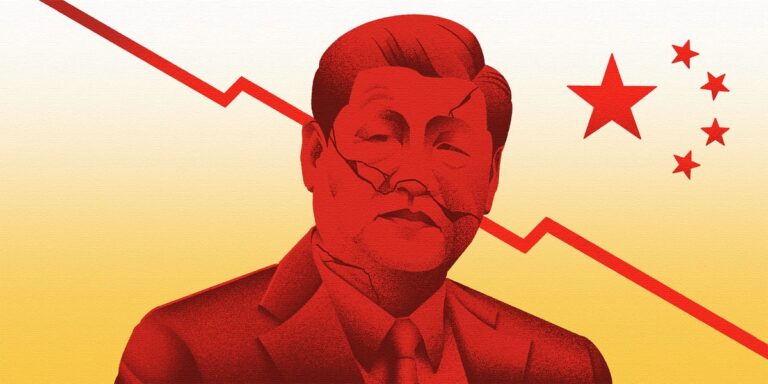- China faces the possibility of further sanctions from the G7.
- The G7 has accused Russia of supplying weapons to Ukraine to fight against it.
- It is becoming increasingly difficult for China to balance its support for Russia with its trade relations with Europe.
NATO Secretary-General Jens Stoltenberg warned this week that China faces tough choices if it continues to back Russia’s invasion of Ukraine.
“President Xi Jinping is publicly trying to create the impression of backing down on this dispute in order to avoid sanctions and keep trade flowing,” Stoltenberg said.
“But the reality is that China is sparking the biggest armed conflict in Europe since World War II.”
“At the same time, we want to maintain good relations with the West.
“Beijing can’t have both at the same time. At some point, allies will have to impose costs unless China changes course.”
Tough stance
The remarks are part of a new, more aggressive stance by the United States and its allies against allegations that China is supplying Russia with critical dual-use materials to bolster its military.
The United States believes China has supplied Russia with equipment such as chips and integrated circuits that could be used to make weapons, but counters that China is not a party to the war in Ukraine and that its trade with Russia should not be interfered with.
At last weekend’s G7 summit, leaders made growing frustration with China clear in a joint statement.
“China’s continuing support for Russia’s defense industrial base enables Russia to continue its illegal war in Ukraine, with profound and far-reaching implications for our security,” the leaders of the world’s leading advanced economies said.
This comes just days after the European Commission told Chinese automakers it would impose provisional tariffs of up to 38% on imported Chinese-made electric vehicles from next month.
Then in April and May, the United States imposed new sanctions on Chinese banks and companies for supplying goods and services to the Russian military.
Xi Jinping’s sense of balance
Analysts say China is trying to strike a balance: It supports Russian aggression to weaken U.S. global influence while also seeking to maintain trade ties with Europe on which its economy depends.
The United States has long urged its European allies to take a tougher stance against Beijing, just as it has done.
But they have hesitated until now. Many countries maintain close economic ties with China, and Europe’s economic powerhouse Germany has long relied on Chinese manufacturing power for products such as cars and electronics.
But there are signs that this is changing in the G7, with European leaders growing increasingly resentful of China.
In a statement, the members said they were ready to further punish Beijing for backing Russia.
“We will continue to take action against Chinese and third-country actors, including financial institutions, who provide material support to Russia’s military, consistent with our legal system,” the statement said.
Tensions between China and Europe rise
China’s support for Russia appears not to be the only factor drawing European attention to the potential threat posed by Russia.
In recent months, authorities in Germany and Britain have arrested people on suspicion of spying for China, and the European Union has accused Beijing of flooding the market with cheap electric cars.
China has sought to exploit divisions in Europe, with Xi visiting Hungary and Serbia shortly after visiting French President Emmanuel Macron in May. Both countries have taken critical stances toward Ukraine and appear eager to defy EU policy and do more business with China. China also appears eager to sow rifts between European countries and the United States.
But China’s attempt at balance appears increasingly difficult to maintain.
A person familiar with the G7 talks told the Financial Times: “The days of ignorance towards Beijing are certainly over. Frankly, the blame lies with China.”

